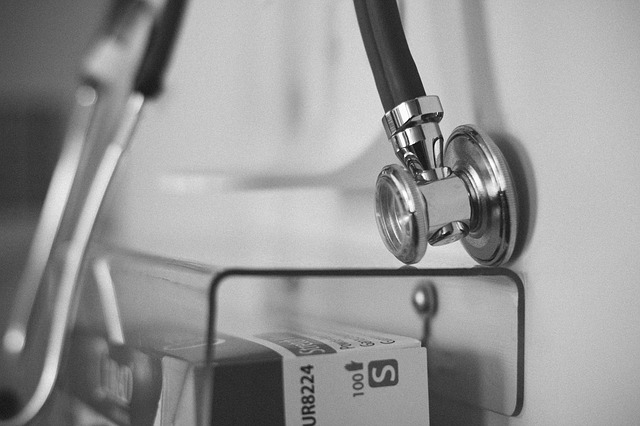{Note: this post doesn’t discuss the use of social media for professional purposes, only personal ones. We’ll address the professional use of social media, such as crowd-sourcing clinical information, at a later date.}
A favorite topic of conversation here at FHO continues to be the use of social media by forensic clinicians. In my travels I have seen my fair share of what I would consider to be questionable or even inappropriate comments on social media, and during testimony workshops, I definitely field a number of questions related to this issue. I have created a short course on personal use of social media (which I may publish in the future), but in the meantime, I’ve created a 10 Things list to help provide some guidance:
1. Don’t feel like you have to give up social media use just because you do this work, but understand its potential impact on your career (and other aspects of your life). Our lives on social media may only portray a fragment of our thoughts or feelings on any given subject, but social media, and how people read into your social media feeds, isn’t about nuance. Jon Ronson, who wrote a book on public shaming and social media’s role, said: “The way we are defined on social media…has become more important than who we actually are as people because everybody you date is going to Google you. Every time you apply for a job people are going to Google you. So these false definitions, these scant parts of your life, these tiny moments, the most extreme thing you did, as opposed to the 25 billion ordinary things that you did, have now become more important ways of defining you than who you actually are.”
2. Boards of Nursing have an interest in our social media use. A 2012 article reviewed the nature of related Board complaints. Note that some of these are a bit ambiguous, meaning that things like “boundary violations” are open to interpretation:
- Breach of privacy or confidentiality against patients
- Failure to report others’ violations of privacy against patients
- Lateral violence against colleagues
- Communication against employers
- Boundary violation
- Employer/faculty use of social media against employees/students
If allegations of misuse of social media are found to be true, the nurse may face disciplinary action by the BON, including a reprimand or sanction, assessment of a monetary fine, or temporary or permanent loss of licensure. (See also: White Paper for definitions and guidance). Civil and criminal penalties are also possible. Check to see what your own State Board has to say on the topic, if anything (e.g.).
3. Physicians are not exempt from reprimands and Board complaints for social media use, and specific guidance exists.
4. Regardless, many professional organizations view social media use as being more than just compatible with our role as healthcare providers: “Social networking can be a positive tool that fosters professional connections, enriches a nurse’s knowledge base, and promotes timely communication with patients and family members.” (ANA, 2012). Clinicians should feel free to embrace social media, but programs should have policies that help define expectations. If your parent organization has one, great–make sure you review it, adopt it (if it gets the job done), and distribute to every member of the team (including your Medical Director). Program managers–if there’s no policy in place, it’s incumbent upon you to create one. Every forensic clinical program should have a social media policy, regularly reviewed and updated. Examples of policies that can be adapted or used as a template can be found here, here, here, and here. (And there are many others–if you have a good one that you’d be willing to share, I’d love to see it.)
5. There is no such thing as privacy online. I promise you. No matter how stringent your privacy settings are on your accounts, it only takes one person with access forwarding something you’ve posted to others to expose your private online activities. Don’t lull yourself into thinking you can keep online information contained. You can’t.
6. There is also no such thing as delete. Information is cached online, even when you think you’ve gotten rid of it. For example, many years ago, I made the switch from my old URL to the current one, and migrated everything to a new platform. I “deleted” the old one. And yet, I still can pull up pages from the previous site. Many things may not stand the test of time, but tweets and Instagram posts will.
7. In our line of work, you can’t truly de-identify a patient enough for social media, so just don’t try it. Keep all patient information out of your social media feeds. Seems obvious, but it happens, even if it’s an innocuous Instagram photo at work that happens to have a board with patient names in the background. There’s a difference between what a patient chooses to share vs what a healthcare organization chooses to share with the patient’s consent vs a nurse or physician’s ability to share. These 3 things are not equal.
8. Disparaging a co-worker or your employer online is also problematic, even if they are never identified. It speaks to a lack of professionalism, which is never a good look on anyone. Don’t be that guy. My general rule of thumb is if you wouldn’t be comfortable saying it to someone’s face, don’t post it. Need to vent–do it one on one with a person you trust.
9. People have asked me how I use social media accounts when getting ready for trial. The answer is, I don’t, generally, at least not with anyone that has reached out to connect with me personally on any number of social media platforms, whose information would otherwise be inaccessible to me. To do so feels a bit exploitative, and I don’t like the way that feels, so I avoid doing it. But that’s me. Others may have a very different perspective on it, so be prepared for that possibility (and consider how you might answer questions about what’s in your social media feed that may imply things like bias or unprofessional behavior). Btw, I don’t have the same qualms about information that is publicly available (meaning no friend or contact request is needed to access the information). For those of you who have considered it, specifically friending someone on social media for the purpose of using it in court is ethically shady (our attorney colleagues have called it straight up unethical). I don’t know of any healthcare standards that have said this kind of behavior is verboten, but I think we all know it’s a lousy practice.
10.) This topic is a good one for a staff meeting or a component of a professional development day. If you’re looking for some resources apart from the ones already mentioned here, let me suggest a few:
Social Networking Principles Toolkit (ANA)
A Nurse’s Guide to the Use of Social Media (NCSBN)
Ethics in Practice for Registered Nurses (Canadian Nurses Association)
Professional Guidelines for Social Media Use (AMA Journal of Ethics)
{What else should be included that I haven’t touched on here? Feel free to add your two cents in the comments below.}











